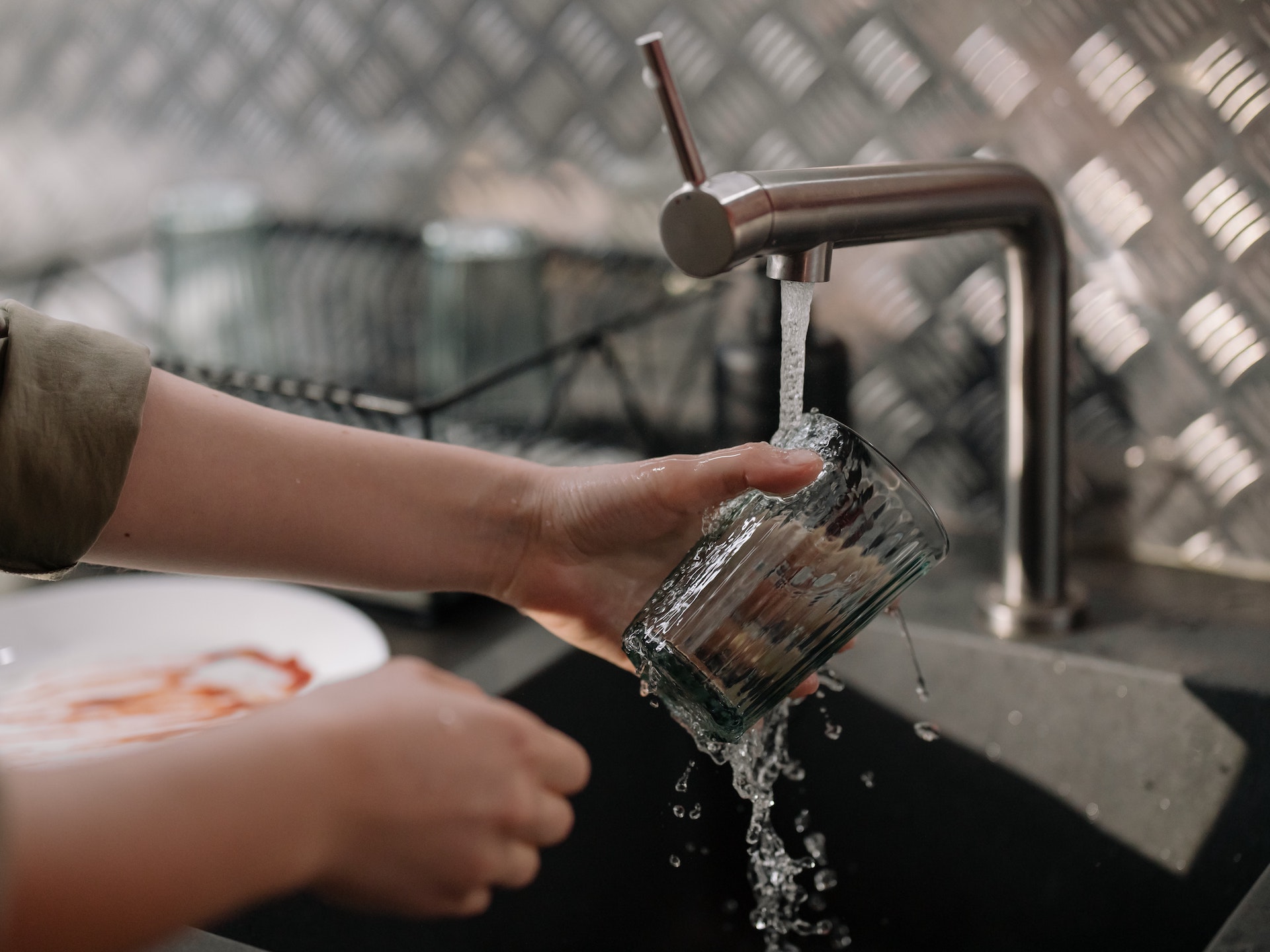Water Filtration in Nashville, TN

Water, just like air, is vital for survival. We use it in our homes for cooking, drinking, washing, and so on. Everything about our lives depends on it, including our dishes, showers, plumbing, bodies, clothes, but we don't seem to care about what the water we use contains or its effect on our health.
In most cases, water contains contaminants that affect its quality. Contaminants are other elements in the water aside from water molecules. Highly contaminated water poses a risk to your health. That's why we encourage water filtration in Knoxville, Nashville, TN, and Asheville, NC, to eliminate water contaminants such as chemicals, heavy metals, viruses, fungi, algae and bacteria, and more.
Below, we've covered Nashville Municipal water and types of water filtration for your home.
What's in Your Nashville Municipal Water?
Over 83% of people living in the United States use municipal water. Unfortunately, most assume that the water from the faucet is healthy for use. So, they use the water without filtering it. Consuming contaminants for a long time can cause an array of health complications, including typhoid and cholera.
Municipal Water
We all believe that municipalities are excellent. They provide water to several families in Nashville. We assume that municipal water meets Environment Protection Agency (EPA) standards of quality water, including water sample testing.
However, considering mass water collection and distribution, it's almost impossible to provide high-quality water to homeowners. Besides, old galvanized iron pipes are still being used as water channels in the U. S. making it even harder to maintain the high quality.
Where does Nashville Municipalities Water Come From?
Most Municipalities water comes from groundwater sources such as wells or surface water like lakes and rivers. Many of Tennessee's municipalities, including those based in Nashville, collect surface water thanks to Tennessee's geographical setup. Surface water does not have any advantage over well water since it's subjected to the same filtration process.
Which are the Main contaminants in Municipal Water?
When you know what's in your municipal water, you'll find the need for filtration to enhance your safety and that of your family. Most homeowners think only well water needs to be filtered, but that's not the case. Your municipal water can contain the following contaminants;
● Hard water- It's not only well water that's hard water - most water municipalities also supply hard water to the various homes. That water will need to be softened.
● Drinking water contaminants- contains contaminants such as heavy metals, pesticides, in-organics, pharmaceuticals, and more.
● Chloramine or chlorine- used during filtration as a disinfectant, and it poses a risk to your health
Types of Water Filtration for Your Home
If your home water is from municipal water, consider the following water filtration types;
● Reverse Osmosis; there are several drinking water filters, but Reverse Osmosis is the most effective. Reverse Osmosis has units that pass water via a multistage filtration procedure. In the first stage, the sediment pre-filter removes large particles such as silt and sand. The second one is a carbon filter that eliminates organic contaminants such as odor and nasty taste. And the semipermeable reverse osmosis membrane that does away with 90%+ of all contaminants.
● Activated Carbon (De-chlorination); these systems filter all the water entering your home through adsorption chemical process. It screens out chemicals like chlorine, among other organics.
● Water softener: water softeners are systems for softening hard water - 'hard' water means that it has more minerals than it's supposed to. These are minerals such as magnesium and calcium. Hard water clogs pipes and makes it hard for soaps and detergents to dissolve in water. Water softeners remove calcium and magnesium ions that cause water to be hard. Iron ions can also be eliminated during softening.
Knoxville, Nashville, TN and Asheville, NC Residents- What's in Your Well Water?
A good percentage of Nashville, TN, Knoxville, and Asheville, NC residents depend on well water as the primary water source. Wells are beneficial because they are cost-effective and provide water to homeowners with no access to city water.
Although well water has benefits, as outlined above, it has its flaws. For instance, you can't tell how long your water supply can sustain you. Some wells can last for years, while others dry after a few years.
The other challenge is that well water quality always raises questions. The water may contain many contaminants such as minerals, dirt, rocks, and more.
What's the Condition of Well Water in Knoxville, TN and Nashville, TN?
Some wells have great water with no tastes, clear, and no odor. However, some well may have good water for a year or two only for things to change. Other wells are more prone to contaminants than others. These aspects create the need for well water filtration in Knoxville, Nashville, TN, and Asheville, NC.
There are four common well water contaminants in these regions. They include;
● Sulfur; sulfur triggers the smell of a rotten egg in your water, which is quite frustrating. However, it can be removed through water filtration.
● Hardness; well water is associated with hardness due to the presence of magnesium and calcium ions. Hard water can destroy pipes, stain glass shower doors, dishes, clothes, water appliances, your skin, and so on. Hard water requires softening to improve its quality.
● Iron; well water with iron has a metallic taste and causes orange staining. Iron ions are removed using filtration equipment.
● Bacteria; the water can also contain E.Coli and Coliform bacteria. Although Coliform poses no risk to your health, E.Coli is dangerous. The two bacteria are common in spring and well-water. It's essential to pass your well water through the filtration process to eliminate bacteria and reduce water-related infections.
There are other well water contaminants that are possible.
Rainwater Harvesting- Solution to Water Scarcity
If you have a problem accessing municipal water or your well water quality is frustrating, rainwater harvesting is a solution to water problems. With adequate rain harvesting resources, you'll have enough water for your entire household. Rainwater can be used for drinking, bathing, cooking, washing, etc.
If you want to improve the quality of your water, PerfectWater has got you covered. We offer essential services such as water purification and filtration in Knoxville, TN, and Nashville, TN. We can also offer guidelines on rainwater harvesting.
Let's help you take control of your water. Contact us now to schedule a water consultation and learn more about our services.
Ready to Take Control of Your Water Supply?
Don’t wait for water shortages or unreliable sources to disrupt your life. With our Rainwater Harvesting systems, you can enjoy a sustainable, reliable, and completely self-sufficient water solution tailored to your home’s needs.

